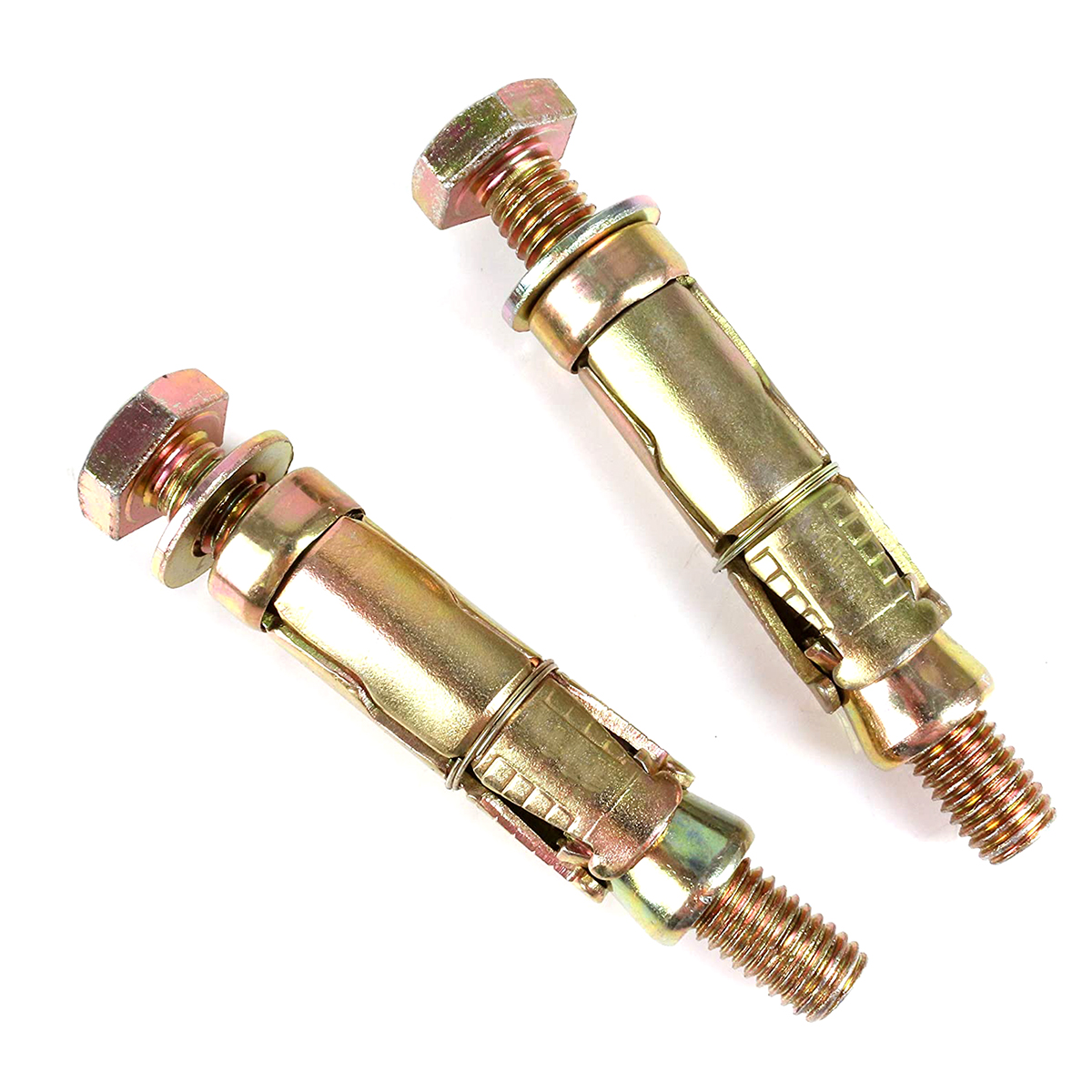Views: 0 Author: Site Editor Publish Time: 2024-02-22 Origin: Site









Hex bolts play a crucial role in engineering as they are considered a critical component for machine assemblies. These fasteners, known for their hexagonal heads, offer several unique characteristics that make them a preferred choice for various applications. In this article, we will delve into the characteristics of hex bolts, highlighting their strength, durability, and versatility. Additionally, we will explore the proper installation and maintenance practices to ensure the longevity and effectiveness of these bolts. Throughout the article, we will also touch on some unique subheads, shedding light on specific aspects of hex bolts that engineers and manufacturers should be aware of. Whether you are a seasoned professional or a novice in the field of engineering, this article will provide valuable insights into the importance of hex bolts and how to maximize their potential in machine assemblies.
Hex bolts are a type of fastener that is widely used in construction and various other industries. These bolts are known for their unique characteristics, which make them ideal for specific applications. Understanding the features and properties of hex bolts is essential for anyone working with these fasteners.
One of the key characteristics of hex bolts is their hexagonal-shaped head. This distinctive shape allows for easy installation and removal using a wrench or a socket. The six-sided head provides a secure grip, preventing any slippage during tightening or loosening. This feature is particularly beneficial in applications where a strong and reliable connection is required.
Hex bolts also come in various materials, including stainless steel, carbon steel, and alloy steel. Each material has its own set of advantages and is chosen based on the specific requirements of the project. Stainless steel hex bolts, for example, are highly resistant to corrosion, making them suitable for outdoor and marine applications. Carbon steel hex bolts, on the other hand, are known for their strength and durability, making them ideal for heavy-duty applications.
Another important characteristic of hex bolts is their threading. These bolts have a threaded shaft that allows them to be securely fastened into a threaded hole or nut. The threading can be either coarse or fine, depending on the application. Coarse threading is commonly used in applications where quick assembly and disassembly are required, while fine threading provides a higher level of precision and tightening torque.
Hex bolts are also available in a range of sizes and lengths to accommodate different needs. The size of a hex bolt is determined by its diameter, while the length is measured from the base of the head to the end of the threaded shaft. It is crucial to select the right size and length of hex bolt to ensure a proper fit and secure connection.
Proper installation and maintenance of hex bolts are crucial for ensuring the structural integrity and longevity of various constructions. Hex bolts, also known as hexagonal head bolts or hex cap screws, are widely used in industries such as construction, automotive, and manufacturing. These bolts are designed with a hexagonal head that allows for easy tightening and loosening using a wrench or socket.
When it comes to installing hex bolts, it is important to follow certain guidelines to ensure they are properly secured. The first step is to select the appropriate bolt size and grade for the specific application. This includes considering factors such as the load-bearing capacity, environmental conditions, and material compatibility. Using the wrong size or grade of bolt can compromise the strength and durability of the connection.
Next, the bolt holes should be properly drilled or tapped to match the size and thread pitch of the hex bolts. This ensures a snug fit and reduces the risk of bolt failure due to loosening or stripping. It is also important to clean the holes of any debris or contaminants that may interfere with the installation.
During the installation process, it is recommended to use a torque wrench to achieve the desired level of tightness. Over-tightening can lead to bolt failure, while under-tightening can result in a loose connection. Following the manufacturer's specifications or consulting an engineer can provide the necessary torque values for different bolt sizes and grades.
Once the hex bolts are installed, regular maintenance is essential to prevent corrosion and maintain their performance. Inspecting the bolts for any signs of damage or wear, such as rust or deformation, is crucial. Any damaged bolts should be replaced immediately to maintain the structural integrity of the assembly.
To prevent corrosion, applying a suitable protective coating or using corrosion-resistant bolts can be beneficial. Regularly cleaning the bolts and surrounding areas, especially in corrosive environments, can also help prolong their lifespan.
Hex bolts are an important component in many industries due to their unique characteristics. They have a hexagonal-shaped head, come in various sizes and lengths, and are made from different materials. These versatile bolts can be used in a wide range of applications. It is important to understand their characteristics to select the right fastener for a specific project and ensure a strong and reliable connection. Proper installation and maintenance of hex bolts are vital for the safety and reliability of structures. Following recommended guidelines, selecting the appropriate bolt size and grade, and conducting regular inspections can enhance their performance and longevity. Although not glamorous, hex bolts play a crucial role in construction by holding everything together.


